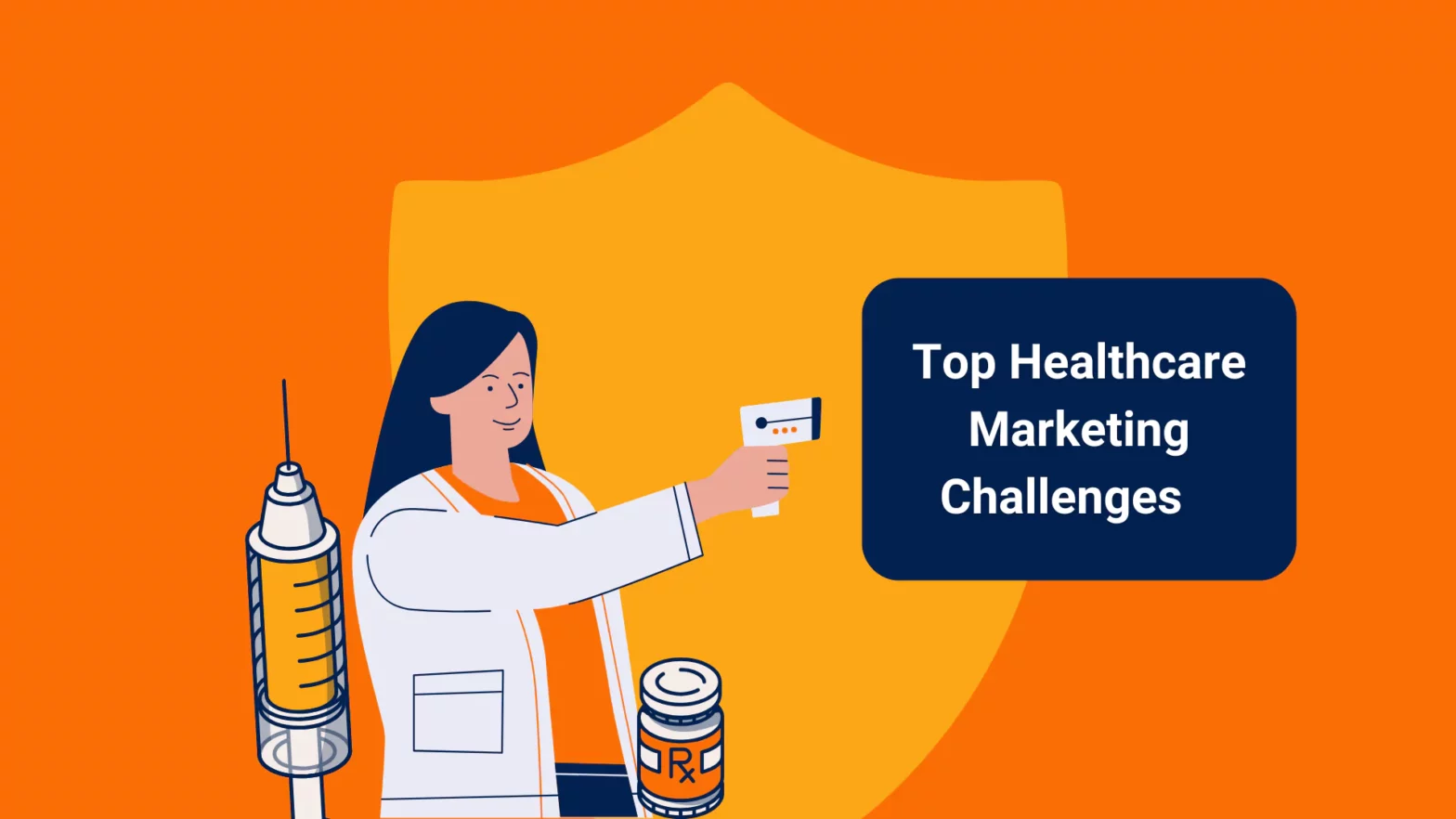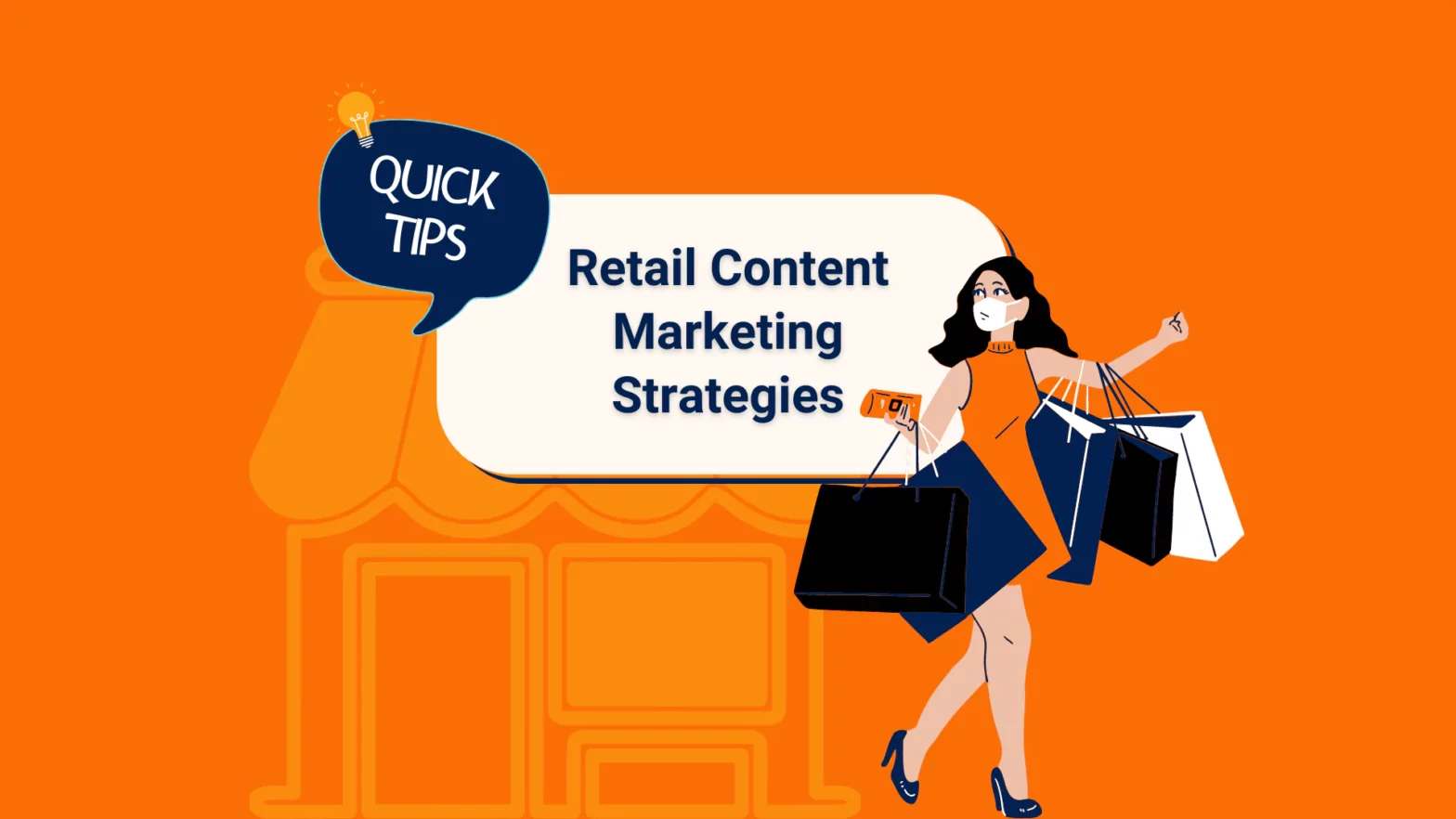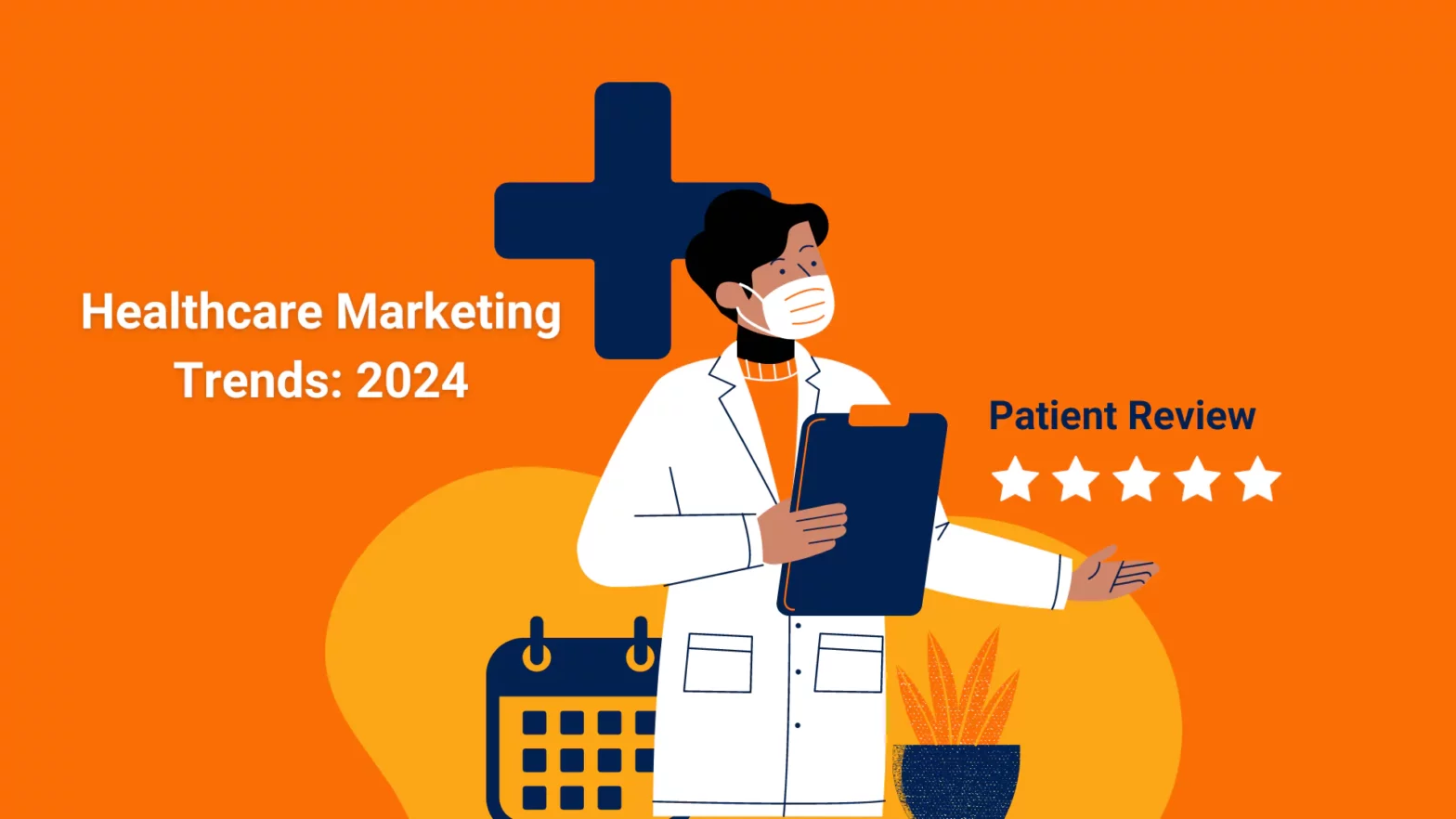Effective Solutions for Top Healthcare Marketing Challenges
Author: Team WH
Published On: 13-12-23
Last Updated on: 14-12-23
Estimated reading time: 9 minutes
Marketing is tough! With varying target audiences, a plethora of marketing platforms, and unprecedented marketing formats like content writing, copywriting, digital marketing, etc., navigating the marketing world can be tricky.
This is more so in the healthcare realm, with fierce competition, high stakes, rules and regulations, and customer preferences. Additionally, the personal and sensitive nature of the healthcare industry makes marketers experience unique challenges.
But, like every other sector, understanding the specific healthcare marketing challenges and their solutions can help marketers create effective marketing campaigns.
Read on to know these top challenges and their effective solutions to help educate the wider public, seamlessly connect patients with doctors, and facilitate a smooth relationship between the stakeholders and the consumers.
What is Healthcare Marketing?
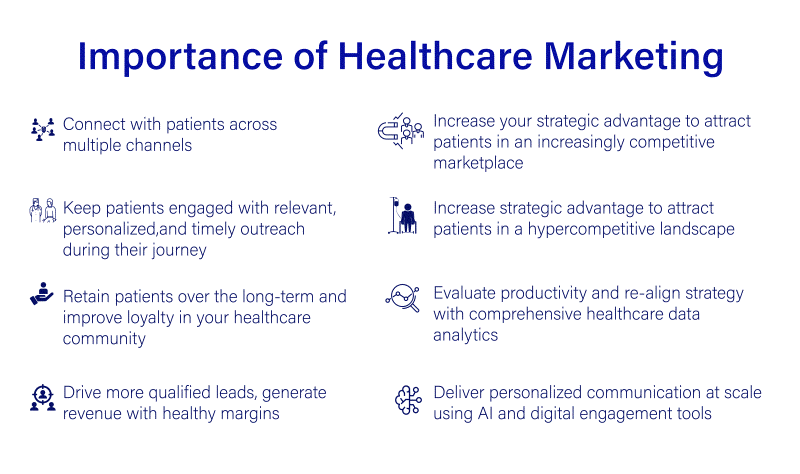
Healthcare marketing is the process that involves developing, communicating, and providing healthcare information to a large audience. It also involves distributing the content strategically through several marketing channels to reach the target audience.
Healthcare marketing also involves promoting the products and services of healthcare institutions in a patient-centric manner to build trust and encourage them to take meaningful action.
It helps institutions achieve marketing objectives like-
- Providing the correct information and making it easily accessible to encourage participation
- Demonstrating expertise and building trust within the target audience
- Brand awareness and reputation management
- Helping the audience understand and better navigate digital healthcare practices
Top Healthcare Marketing Challenges and Solutions
While every industry faces a set of marketing challenges, here are a few specific challenges faced by the healthcare industry and their effective solutions.
1. Tight Marketing Budgets
The healthcare stakeholders, ranging from massive hospitals to small clinics, have displayed reluctance in allocating sufficient marketing budgets. Even if hospitals engage in marketing, it usually involves getting donors on board.
This financial constraint creates challenges like limited marketing channels, inadequate interaction with prospects, and inability to conduct essential marketing activities like SEO (search engine optimisation), analytics, content creation, etc.
This also makes it challenging for marketers to create content, enhance their online presence, track performance metrics, and target the right audience.
Solution
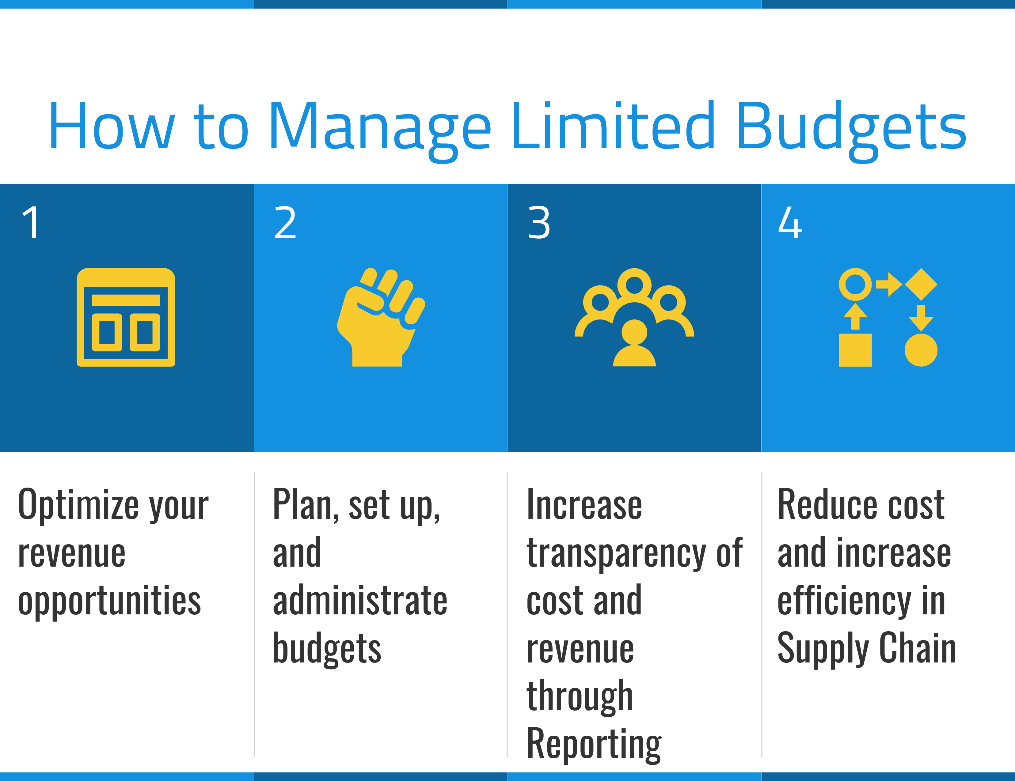
With several AI (artificial intelligence) and online tools, overcoming this challenge has become easier. Marketers can use free tools like Google Analytics and Google Keyword Planner to plan and measure the effectiveness of their marketing strategy.
Additionally, investing in cost-effective marketing strategies like content marketing generates higher ROI (Return on Investment). This marketing approach can help healthcare institutions develop engaging and educational content and attract their target audience organically.
Furthermore, marketers can put in efforts to identify high-ROI marketing channels based on the target audience and allocate resources to these specific channels to maximise impact on a budget.
2. Navigating Mass Ideology Regarding Healthcare
One of the healthcare marketing issues marketers face is the confusing and somewhat negative ideology associated with the healthcare system at large. Audiences believe this industry to be highly politicised and thus find it difficult to trust health-related information, products and services.
Stakeholders and companies in the healthcare industry have to go a long way to instil trust in their target audience.
Additionally, long wait times and difficulty understanding the healthcare system, particularly the online space, further undermine the overall perception of healthcare.
Solution
Marketers should embrace transparency. They can encourage healthcare brands to clearly share the services, quality measures, outcomes and pricing on social media channels and their websites. This will help build trust and project a patient-centric approach.
Additionally, these healthcare institutions can also engage in community outreach initiatives like health camps, educational seminars and webinars, local health initiatives, and contributions to NGOs (non-governmental organisations) to help people in need and build a trustworthy reputation.
Healthcare institutions can also leverage inbound content marketing strategies by creating, publishing, and linking informative, actionable, and educational healthcare-related content. This will put forth the right information and make it easily accessible.
3. Medical Practitioners’ Resistance to Change
This is a challenge very specific to the healthcare industry. The stakeholders, medical practitioners, and doctors are reluctant to proactive marketing. This is because they believe a proactive marketing approach can undermine their expertise and potentially highlight their practice in a bad light.
Solution
Here, marketers should make doctors and practitioners understand the changing preferences of the modern consumer. They should gather resources and statistics to prove how marketing is essential to a successful healthcare brand.
Additionally, with plenty of information on the internet, marketers can encourage doctors to provide useful information to help their target audience and establish authority and expertise.
Ultimately, marketers and doctors should find a middle ground and track and analyse various marketing practices to find the most effective one while keeping the doctor’s comfort in mind.
For instance, if the doctor is reluctant to show their face in marketing campaigns, marketers can opt for email or content marketing. If the practitioner is not comfortable with revealing their name, marketers should maintain anonymity.
4. Maintaining an Online Reputation
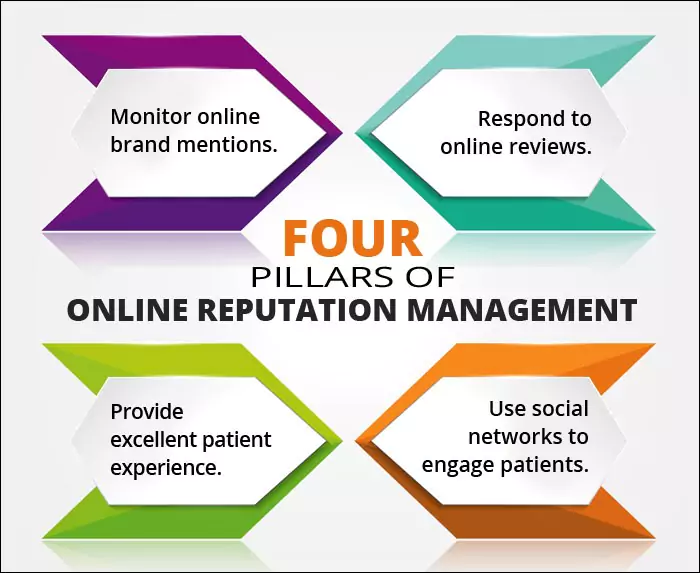
Online reputation, particularly for the healthcare industry, is paramount, given the stakes. With just a single bad review, patients would not want to risk their lives.
With every marketing-related post, be it customer testimonials, media coverage, social media posts, or guest posting, healthcare marketers have to be very particular and ensure none of it can tamper with the reputation of the healthcare brand.
Constantly maintaining this reputation is a major healthcare marketing challenge that marketers face.
Solution
Healthcare marketing teams can encourage satisfied patients to leave good reviews. This will cancel out any bad reviews. Even if a negative review is posted, one should respond professionally and help the affected person redress their issue.
Another effective solution to this challenge is outsourcing the content marketing department to ensure that the quality of content representing your healthcare brand is always top-notch.
A team of professional and experienced marketers would be at their disposal, making it easier for healthcare brands to reach their target audience, build trust, and maintain a healthy reputation for the brand.
5. Lack of Effective Marketing Copy
While this is common for most industries, what distinguishes the healthcare industry is the need to build trust with the audience early. Since the audience is already vulnerable, earning their trust in healthcare professionals via marketing can be challenging.
The marketing copy must be able to capture the attention of the audience and educate and inform them about essential healthcare concepts without tampering with the emotions of the people. Additionally, marketers must comply with the HIPAA (Health Insurance Portability and Accountability Act) regulations that instruct promoting services while respecting the privacy and confidentiality of the patients.
Moreover, explaining complex healthcare terminologies without jargon and in simple language along with marketing a product/service/brand can be a major healthcare marketing challenge.
Solution
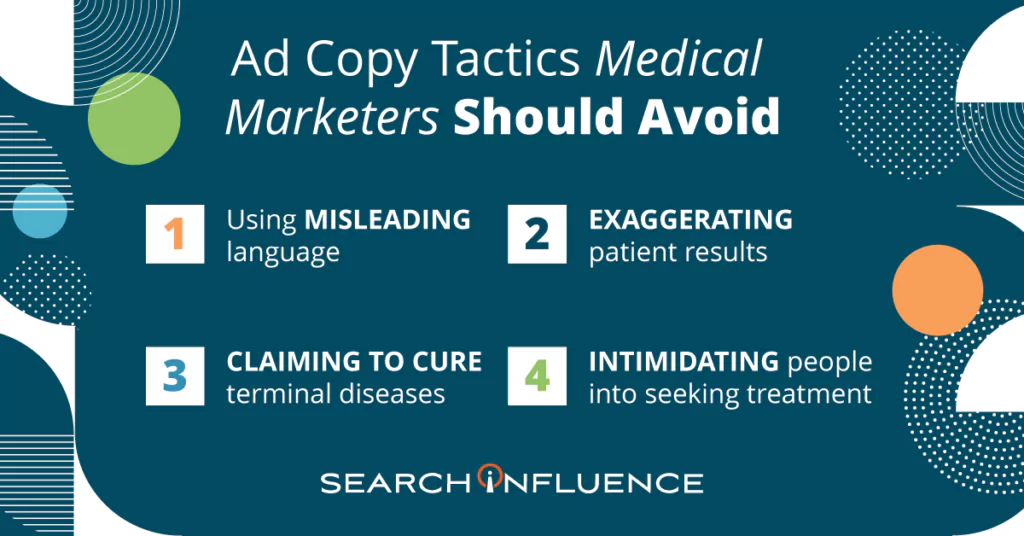
The lack of compelling marketing copies in the healthcare industry can be addressed by avoiding technical jargon. The marketing copy, be it a Google ad, blog or social media ad, should focus on the benefits rather than the features the brand offers.
Additionally, incorporating the art of storytelling by using real-life examples and patient success stories in the content can help the target audience resonate with the brand.
Healthcare marketers should also alter their content based on the platform where it would be marketed. For instance, using sensitive images on the company website is not a good idea, as the audience possibly wants to avoid such content. On the other hand, talking about the positive impact of the website can encourage the target audience to explore the page.
Tips to Make Healthcare Marketing More Effective
Use Personalised Messages
Personalisation is the key, as the patients are already in a vulnerable state and want to feel like they are being cared for. Hence, marketers must create personalised messages and emails to connect better with the audience. They can also send a personalised note on WhatsApp, SMS or Instagram DM to follow up with the patients.
These added personalised touches can not only help with retaining existing customers but also leave a good impression.
Leverage Influencer Marketing
Influencer marketing is when institutions use help from people who have built a community or audience based on their personal brand. Influencers can help spread information like new features added to the digital healthcare app, a free health consultation offer, a new workshop or event being conducted, etc.
Create Content for Niche Communities
Dividing the target audience based on their geography, behaviour, preferences, and demographics and then creating content specific to that segmented niche community can help marketers build trust and tailor the medical experience for a diverse set of audiences.
Social Media Engagement
Patients want to feel that the healthcare institution is always there for them. Thus, marketers should allow for open communication and engagement using social media platforms or by conducting live sessions. This will encourage connections and also help clarify all medical-related issues.
Conclusion
A perfect blend of these effective solutions, digital tools, and a team of marketing professionals can make navigating the healthcare marketing challenges easier.
While there are several solutions, one thing common in all of them is the importance of content marketing. Content marketing is a cost-effective strategy to personalise marketing campaigns and leverage data to create and optimise marketing efforts. This helps satisfy both the customers as well as the stakeholders’ preferences.
Contact WrittenlyHub today to leverage a team of professional writers and marketers to increase brand awareness, reach the target audience, and increase ROI.
Frequently Asked Questions
1. How Does Marketing Affect the Healthcare Industry?
The effect of marketing in the healthcare industry is not limited to generating leads, brand awareness, and increasing profits.
It also involves creating valuable educational content for the patients, establishing a rapport and developing trust within them, and maintaining a positive image among the stakeholders and the community. This way, the healthcare industry becomes more informative, reliable, and easily accessible to consumers.
2. How is Healthcare Marketing Different From Usual Marketing?
What distinguishes healthcare marketing from usual marketing is the nature of the healthcare industry itself. The healthcare marketing team must consider the highly regulated services and products of the industry, where the stakes are high owing to the life-saving responsibility of the stakeholders. Additionally, the healthcare industry has fierce competition, making the marketing realm more challenging.
3. How can the Healthcare Marketing Team Adapt to the Changing Consumer Preferences?
Customer preferences and states, particularly for the healthcare industry, require effort from the stakeholders to build trust, particularly after the pandemic. Thus, to adapt to these changes, healthcare marketing teams can leverage digital experiences, online reviews and customer testimonials to build trust. Additionally, they should provide seamless integration of telehealth services to its customers for ease.
4. How can Healthcare Marketing Reach the Diverse Global Demographic?
The marketing team can use data analytics to understand and segment the global audience based on common demography like age, region, language, etc. and then leverage personalised and multichannel marketing approaches (like emails, social media platforms, TV ads, etc.) to derive effective marketing strategies. This will help the marketing team reach a diverse global audience effectively and systematically.
5. How can Healthcare Marketers Leverage Personalisation While Maintaining Patient Privacy?
Healthcare marketing teams can maintain the privacy of the patients while adopting a personalised marketing approach by being transparent about the data collection process and use case and pairing this with anonymised data. This will help marketers segment the data based on relevant criteria and target messages without tampering with patients’ privacy.


